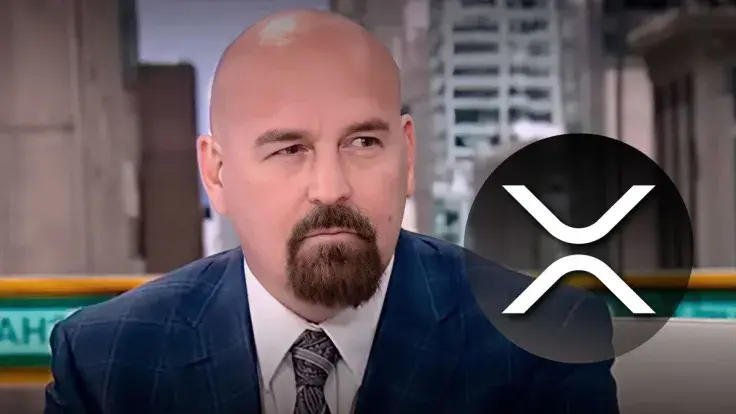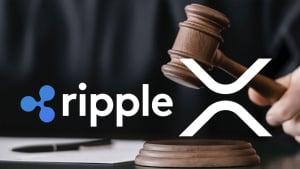
Disclaimer: The opinions expressed by our writers are their own and do not represent the views of U.Today. The financial and market information provided on U.Today is intended for informational purposes only. U.Today is not liable for any financial losses incurred while trading cryptocurrencies. Conduct your own research by contacting financial experts before making any investment decisions. We believe that all content is accurate as of the date of publication, but certain offers mentioned may no longer be available.
Pro-Ripple lawyer John Deaton, the founder of CryptoLaw, has taken to Twitter to share an argument as to why XRP cannot be qualified as a security even if it was once sold as an investment contract by Ripple.
He believes that this rule can also be applied to Bitcoin and other digital currencies, explaining his point of view in a Twitter thread.
"XRP remains a digital code"
Deaton's thread began with slamming the man, who is the right hand of Warren Buffett, and also a crypto hater, 90-year-old Charlie Munger. In an op-ed released by The Wall Street Journal, he shared his take on why the U.S. should ban Bitcoin and crypto overall, calling cryptocurrency nothing but a "gambling contract."
Deaton tweeted that any cryptocurrency, including XRP, is first of all a digital code. He insisted that XRP remains one even if Ripple sold it as an investment contract (aka security) in the past, or is still doing it now.
Referring to the case of LBRY Credits (LBC) against the SEC, he reminded the community that the judge, in that case, ruled that even though LBRY made direct LBC sales to Flipside Crypto, in that particular case, it was an investment contract.
However, per the judge's ruling, that does not apply to LBC sales on the secondary market. In those cases, those tokens were not investment contracts. This proves, Deaton believes, that LBC in itself is no security. Otherwise, the judge's ruling would be applied to all of its sales on the markets.
The same should be logically applied to XRP, the CryptoLaw creator believes.
If @Ripple offered or sold #XRP as an investment contract at some point during its history - or even if it does today - it does not make #XRP a security. #XRP remains digital code.
— John E Deaton (@JohnEDeaton1) February 3, 2023
The Judge in @LBRYcom ruled LBRY sold #LBC as an investment contract when it made DIRECT sales.
"Bitcoin packaged sold as a security"
Deaton went further than just the SEC's case against Ripple Labs and XRP and added the flagship cryptocurrency, Bitcoin, to his arguments. He reminded the crypto community that BTC was also initially a digital code. However, it was then "packaged, marketed, offered and sold" as an investment contract.
The same, Deaton said, goes for beavers (or rather their skin, most likely), condos and chinchillas. Even if these can be sold as a security, it does not make them one.
Just b/c #BTC was utilized by someone as a security, didn’t turn #BTC into a security.
— John E Deaton (@JohnEDeaton1) February 3, 2023
Beavers 🦫 were once offered and sold as an investment contract. 🦫s remained 🦫s, not securities.
Condos and Chinchillas were sold as investment contracts. They didn’t become securities.
The Ripple case has been going on since December 2020, so for over two years now. Recently, speaking at the World Economic Forum in Davos, the chief executive of the company, Brad Garlinghouse, said in several interviews that all the necessary materials have been briefed and submitted for the judge to look at.
Garlinghouse expects the judge to make a decision on the case later this year — hopefully in its first half. He believes that the chances of a settlement are close to zero, though, but he is looking forward to a verdict in the case.

 Dan Burgin
Dan Burgin Alex Dovbnya
Alex Dovbnya Gamza Khanzadaev
Gamza Khanzadaev Tomiwabold Olajide
Tomiwabold Olajide Denys Serhiichuk
Denys Serhiichuk